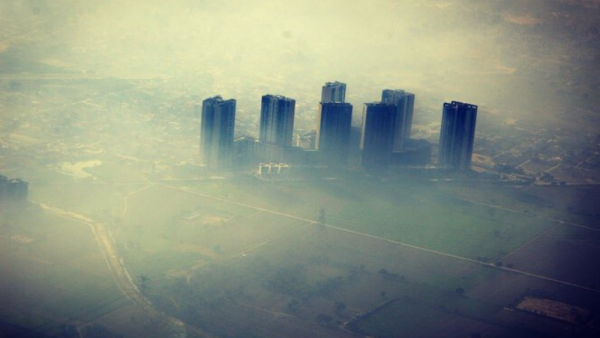According to many experts, the world will not be the same after the coronavirus epidemic. This includes health practices, governments' priorities, economic policies, and human behaviors.
Due to lockdowns of major cities, in particular China, the world has seen a drop in Carbon Emissions. The work from home approach may see business carbon footprints shrink up to 25%. Could this current precaution potentially inspire a long-term behavioural change?
— Low Energy Consultancy Ltd (@LEConsultancy) March 19, 2020
?:NASA pic.twitter.com/PaQ3A13zCc
COVID-19 may have taken its toll on the global economies, as markets experience one of their worst slowdowns in recent years and business leaders brace for a possible recession over the next years. Yet, the deadly disease has been forcing humans to change most of their daily practices as if it's here to set a new world order.
Ever since its outbreak in China last December, the coronavirus has forced many factories to close and has halted global travels to unprecedented levels; ones we haven't witnessed even following the 9/11 terrorist attacks.
This latest health crisis has also made millions of people carry on their daily tasks using the internet at their homes leaving streets looking so empty in some of the often busiest cities of the world, all in fear of the novel coronavirus.
Stock markets have been suffering huge losses over the last weeks, as oil prices plunge pressured by the significant drops in flights and movements worldwide. Businesses have since been suffering to minimize their losses, while unemployment rates are expected to spike to their worst rates in decades pushing strategic planners to set plans for the difficult scenarios the world might have to face once the pandemic is over.
This emergency has had one silver lining though: gas emissions have been at their lowest levels in decades. CO2, nitrogen dioxide, methane and a variety of other gases have all seen a massive drop especially in China and Italy, the two countries with the highest number of COVID-19 victims so far. China, for example, has reportedly witnessed a 25% drop in emissions over the course of two weeks compared to 2019.
The coronavirus pandemic has had an unexpected side effect in Venice—where the normally cloudy canals have transformed into water crystal clear enough to see fish swimming below. https://t.co/eaBoaUXxn4 pic.twitter.com/LtEAAVQnix
— ABC News (@ABC) March 19, 2020
Influenced by a pause on flights, factory production and fossil fuel use, polluting gases have reportedly decreased to levels that have for long been hoped for by scientists who constantly warn of the dangers posed by climate change.
As they start making future plans hoping for quick economic recovery to restore profit, businesses can seize the moment and make life-changing decisions that can keep planet earth as clean as possible, once the coronavirus tragedy is over.
According to Helen Mountford, vice president of Climate and Economics at the World Resources Institute, the world is upon a crucial chance to keep the tragedy's environmental temporary bright side more long-lasting. Businesses should make sure that recovering from a health crisis triggered by a virus shouldn't start another environmental crisis, one that will likely have its impact on people's health as well.
Mountford and other experts encourage business leaders to shift to low-carbon activities, highlighting that "companies committed practices such as using renewable power have better net profit margins and earnings than those without this commitment".
With drastic improvements in the environment and reductions in emissions due to the pandemic, maybe the world should consider implementing 1 week a month as a "breather" where traffic and industry scales back, and people work from home. https://t.co/2g5jAzdadO
— S.T. Bikes KC ????? (@STBikesKC) March 18, 2020
Investing in green infrastructure as the world gets back to business post the coronavirus outbreak will help companies achieve better and more long-term results. Businesses, whose experiences in running their tasks from homes prove to be successful during the coronavirus emergencies, can use the chance to make it a more common practice, minimizing people's daily use of gas-producing cars and other means of transportation.
Additionally, governments have a great chance to take part in strong climate action, especially now as they provide billions of dollars in stimulus packages to support suffering businesses.
Analysts suggest that governments can offer conditional financial incentives linked to environment-friendly practices, such as the use of green energy sources and minimizing non recyclable waste.
As we emerge from this devastating plight, humanity needs to learn its lessons in order for it to avoid other looming disasters.







